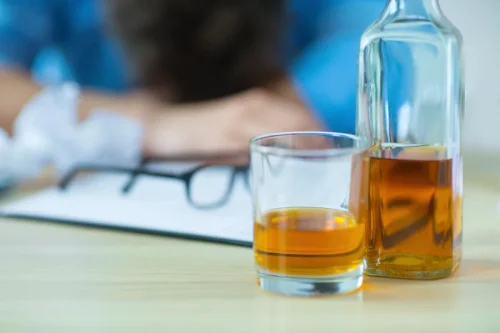
The majority of the recovery community views weed use as a relapse. As a general rule of thumb, if you are unsure of whether or not you can or should use the drug, don’t use it. If you have to argue with yourself and others to justify your use of any kind of drug, it probably https://ecosoberhouse.com/ means your use of said drug counts as a relapse. Another challenge for someone in the early stages of recovery is the pink cloud. This refers to the confidence gained from early success in your recovery journey. It can lead you to assume you can handle milder drugs because you stopped using harder drugs.
- This means that you’ll have to smoke more to get the same “high” that you got at the beginning.
- These skills include avoiding triggers that make a return to use more likely.
- You can be addicted to weed even if you’re not taking it every day.
- Reflecting on your use is an important part of the decision-making process.
- Secular Organizations for Sobriety (SOS) programs are a conglomeration of recovery programs, both online and in-person, which provide an alternative to AA.
Can You Stay Sober and Still Smoke Weed?
- They also offer online meetings and resources that can be beneficial to those who can’t travel to a meeting in person.
- It can be difficult to determine whether or not using weed counts as a relapse.
- Our experienced staff is dedicated to helping you navigate the challenges of early recovery and achieve long-term sobriety.
- Fellowship, its 12-step program of recovery, and related topics.
- The majority of the recovery community views weed use as a relapse.
Many in AA see using marijuana as a relapse, as it can impair judgment, give a false sense of control, and potentially lead to using other substances. Sobriety is a journey that requires commitment and dedication, and how to stay sober without aa having a community of like-minded individuals can make a significant difference in your success. Although neither form of sobriety is necessarily wrong, beginning to use weed can put your, sobriety at risk.
- It’s not what landed me in rehab, so it couldn’t have been that bad, right?
- Taking the first step towards recovery can be daunting, but knowing your options for care is paramount to your success.
- To put it most simply, those people who used any cannabis at all were sober for less time.
- Our nationwide network of addiction treatment and recovery centers in New Jersey and Los Angeles.
Is Smoking Weed in Recovery a Relapse?

Some people still consider themselves sober while continuing to smoke weed simply because they no longer use hard drugs or drink. Many people in recovery believe sobriety means complete abstinence from all alcohol and drugs, including weed. Conversely, some people find a moderate approach more realistic and sustainable, particularly when medicinal marijuana is involved. If you’re considering this route, it’s critical to consult healthcare providers and to be completely transparent about your past and current sobriety goals. A lot of times, an outside lived experience perspective can give insight into your current situation. People with lived experience are an asset and can help you make the right decision on smoking weed or using other substances while in recovery.
I think that’s dangerous.

If you’re looking to sober up from smoking weed, there are a few things you can do. Second, eat healthy foods and avoid sugary snacks, as they can make you feel more sluggish. Finally, get some exercise; a short walk or run can help to increase your heart rate and speed up the sobering process. Although many people view weed as fairly harmless, as much as 30% of weed users are thought to have some degree of marijuana use disorder, and 8.9% are believed to be dependent on it.

While in recovery, especially early on, marijuana may initially be used as a crutch to prevent the use of other drugs and alcohol, but marijuana use can quickly turn into dependency. Many people have legitimate medical reasons for taking certain drugs. If someone is taking a drug for a medical reason and it has side effects, it does not mean that they are abusing that drug. The fact is that many people who want to stop drinking feel like they have to stop taking all medications. You should consult with a doctor about what you are taking, but most drugs that people take are safe to take when you are sober. This will give you a clearer picture of what you are putting yourself into.
- The other clients made me feel accepted and “a part of their tribe.” I will always look fondly at my time here.
- Contrary to this belief, many regular marijuana users develop marijuana use disorder, and some of them become dependent on the drug.
- With cannabis being legalized, the efficacy of THC during sobriety is more in question than ever, even if most people still consider any drug, legal or illegal, a threat to sobriety in general.
- Along with the risk of getting hooked, smoking marijuana in recovery could act as an addiction trigger.
- With many drug rehab programs, treatment centers face a challenge to address the underlying psychological and emotional factors of drug addiction.
- Trust me, you don’t want to deal with this list of problems while battling another addiction.
That is, the co-occurrence of mental health issues along with substance abuse. I dragged my ass back to AA and quickly got a sponsor. Three months later, I relapsed, but “only” for a couple of weeks. I got another 90 days under my belt when Florida’s medical marijuana law went into effect. I had taken my psychiatric diagnoses over to the marijuana doctor and got a “recommendation” that I use about 250 mg of THC a day.
Marijuana is a lighter drug, widely accepted throughout the world. Worst comes to worst, you’ll become stoned, hungry and then take a nap. For people who are concerned about their use of alcohol, drugs, or other behaviors, like gambling or self-harm. These questions can help you reflect on your medical use of marijuana and determine if it is healthy and good for your recovery. For more information on Oxford House relapse prevention and maintaining long-term sobriety, check out this resource on substance abuse relapse.
What Does Sobriety Mean to You?
They also offer online meetings and resources that can be beneficial to those who can’t travel to a meeting in person. In this case, your definition of sobriety will determine if the use of weed is a relapse or not. If you do not believe that you need to be completely abstinent to be sober, then using weed may not mean you relapsed. That being said, studies have shown that those who use weed, even once or twice, stay sober for less time.







